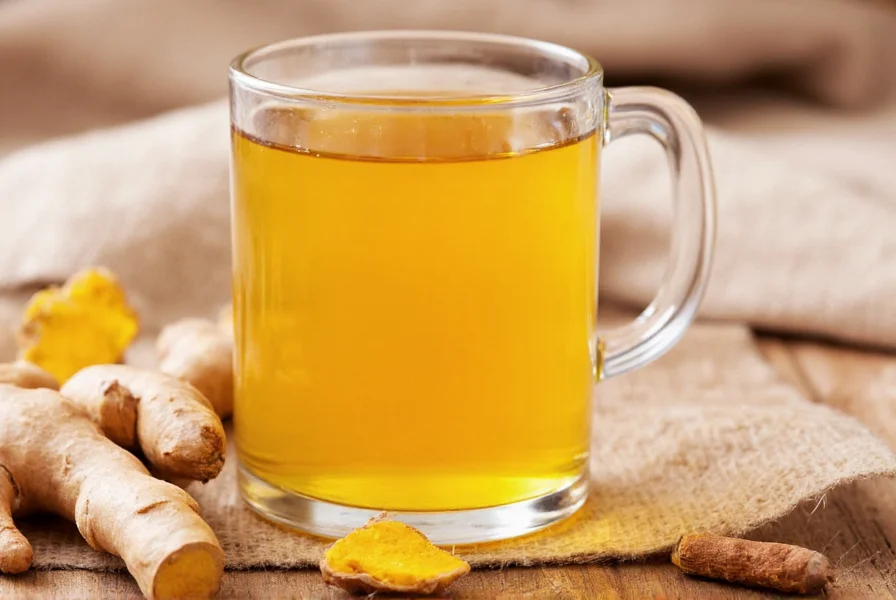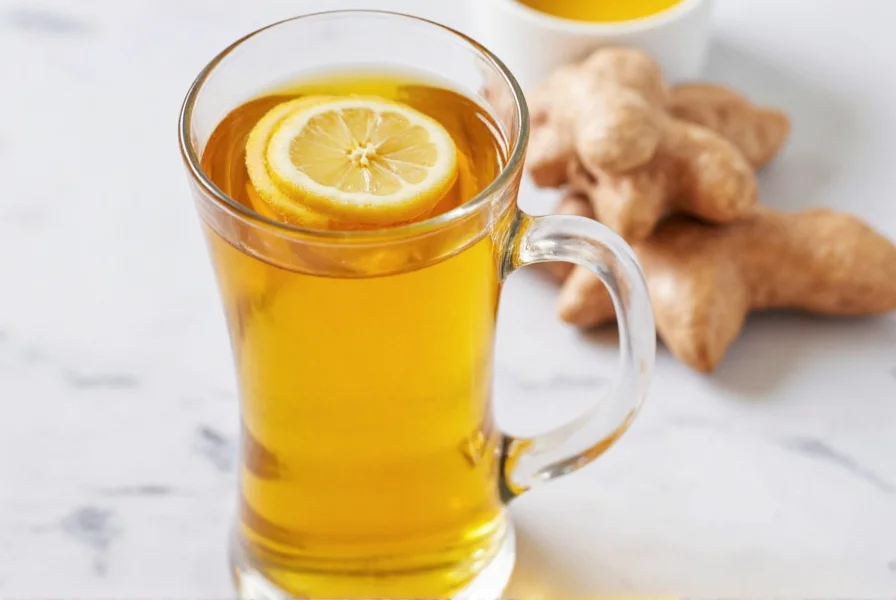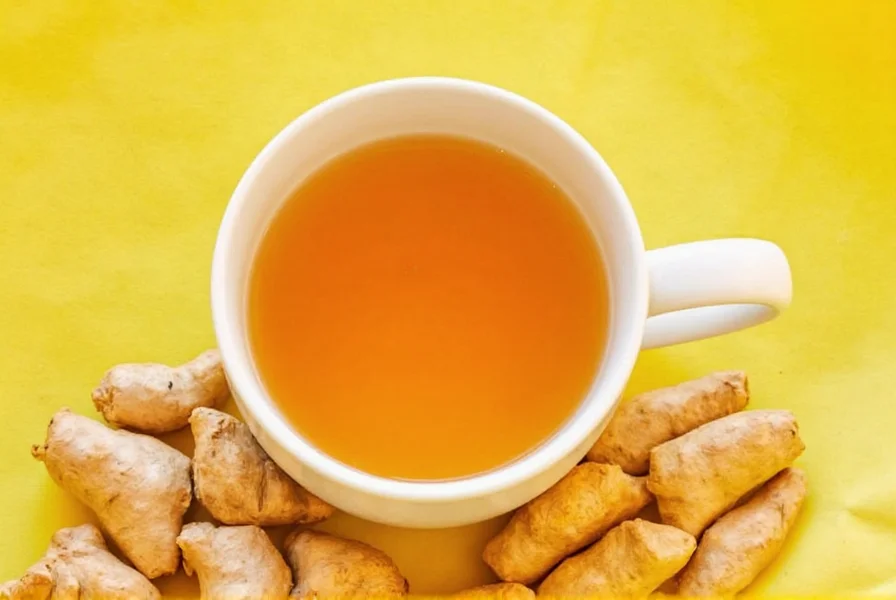Ginger tea with turmeric has gained significant popularity as a natural wellness beverage, blending ancient Ayurvedic and Traditional Chinese Medicine practices with modern scientific understanding. This golden-hued tea isn't just a trendy health drink—it represents a convergence of traditional wisdom and contemporary research on plant-based compounds that support human health.
The Science Behind Ginger and Turmeric
Both ginger (Zingiber officinale) and turmeric (Curcuma longa) belong to the Zingiberaceae family and contain bioactive compounds with demonstrated physiological effects. Ginger's primary active component, gingerol, transforms into shogaol when heated, both compounds showing potent anti-inflammatory and antioxidant properties in clinical studies. Turmeric's star compound, curcumin, has been the subject of over 12,000 peer-reviewed studies examining its effects on inflammation pathways.
Research published in the Journal of Medicinal Food demonstrates that the combination of these spices creates a synergistic effect greater than either consumed alone. The piperine in black pepper—which should always accompany turmeric tea—increases curcumin absorption by up to 2,000%, making proper preparation crucial for maximizing health benefits of ginger and turmeric tea.
Evidence-Based Health Benefits
When exploring how to make ginger turmeric tea for inflammation, it's important to understand the scientific basis behind its purported benefits:
- Anti-inflammatory effects: A 2019 meta-analysis in Phytotherapy Research found ginger supplementation significantly reduced markers of inflammation including CRP and TNF-α
- Digestive support: Clinical trials show ginger accelerates gastric emptying by 25%, while turmeric's curcumin stimulates bile production essential for fat digestion
- Immune modulation: Both spices demonstrate immunomodulatory effects, with ginger showing particular promise against respiratory viruses
- Antioxidant capacity: ORAC (Oxygen Radical Absorbance Capacity) testing reveals both spices rank among the highest natural sources of antioxidants
Optimal Preparation Method
The effectiveness of ginger turmeric tea depends significantly on proper preparation. Here's a science-backed recipe that maximizes bioactive compound extraction:
| Ingredient | Amount | Preparation Tip |
|---|---|---|
| Fresh ginger root | 1-inch piece, sliced thin | Do not peel—nutrients concentrate near skin |
| Fresh turmeric root | ½-inch piece, grated | Wear gloves to prevent staining |
| Black pepper | ⅛ teaspoon freshly ground | Essential for curcumin absorption |
| Water | 2 cups filtered | Simmer 15-20 minutes (not boil) |
| Lemon juice | 1 tablespoon | Add after steeping to preserve vitamin C |
For those seeking a ginger turmeric tea recipe with black pepper, this combination delivers maximum therapeutic benefit. The citric acid in lemon enhances mineral absorption while protecting heat-sensitive compounds. Avoid adding honey until the tea cools to 140°F (60°C) to preserve enzymatic activity.

Safety Considerations and Potential Side Effects
While ginger tea with turmeric is generally safe for daily consumption, certain populations should exercise caution:
- Individuals taking blood thinners like warfarin should consult their physician, as both spices have mild anticoagulant properties
- Those with gallstones should avoid therapeutic doses of turmeric as it stimulates bile production
- Pregnant women should limit ginger intake to 1 gram daily (about ½ inch fresh root)
- People with gastroesophageal reflux disease (GERD) may experience worsened symptoms
The recommended daily amount for general wellness is 1-2 cups of properly prepared tea. Therapeutic dosing for specific conditions should be determined with a qualified healthcare provider. Understanding side effects of drinking ginger turmeric tea ensures safe consumption while reaping maximum benefits.
Fresh vs. Powdered: Which Delivers More Benefits?
When considering ginger tea with turmeric for digestion, the form of ingredients matters significantly:
- Fresh roots: Contain higher levels of volatile compounds, with ginger providing 5% gingerol by weight versus 1.5% in dried powder
- Dried powders: More concentrated in some compounds but lose volatile oils during processing
- Storage impact: Fresh roots maintain potency for 2-3 weeks refrigerated, while powders degrade after 6 months
For best time to drink ginger turmeric tea, consider your health goals. Morning consumption supports digestion throughout the day, while evening tea may improve sleep quality through inflammation reduction. Those seeking does ginger turmeric tea boost immunity benefits should consume it consistently rather than sporadically.

Integrating Into Your Wellness Routine
Ginger turmeric tea works best as part of a comprehensive wellness approach. Pair it with:
- Anti-inflammatory diet rich in omega-3 fatty acids
- Regular physical activity
- Adequate hydration
- Quality sleep patterns
Consistency matters more than quantity—daily consumption of 1-2 cups provides cumulative benefits. Those specifically researching scientific evidence for ginger turmeric tea benefits should look for studies using standardized extracts equivalent to 1-2 cups of properly prepared tea.
How often should I drink ginger turmeric tea for optimal benefits?
For general wellness, 1-2 cups daily provides optimal benefits without risk of side effects. Therapeutic use for specific conditions like arthritis may warrant up to 3 cups daily, but consult with a healthcare provider for personalized recommendations, especially if taking medications.
Can I use ground spices instead of fresh roots for ginger turmeric tea?
Yes, but with reduced potency. Use ¼ teaspoon ground ginger and ⅛ teaspoon ground turmeric per cup of water. Remember to add black pepper and a fat source (like coconut milk) to enhance curcumin absorption, as powdered forms contain less volatile compounds than fresh roots.
How long does it take to feel the benefits of ginger turmeric tea?
Most people notice digestive improvements within 24-48 hours of regular consumption. Anti-inflammatory effects typically become noticeable after 2-4 weeks of daily consumption. The timeframe varies based on individual metabolism, health status, and consistency of consumption.
Is ginger turmeric tea safe for people with diabetes?
Generally yes, and it may support blood sugar regulation. Both ginger and turmeric show potential benefits for insulin sensitivity in clinical studies. However, those on diabetes medication should monitor blood sugar closely as the tea may enhance medication effects, potentially causing hypoglycemia.











 浙公网安备
33010002000092号
浙公网安备
33010002000092号 浙B2-20120091-4
浙B2-20120091-4